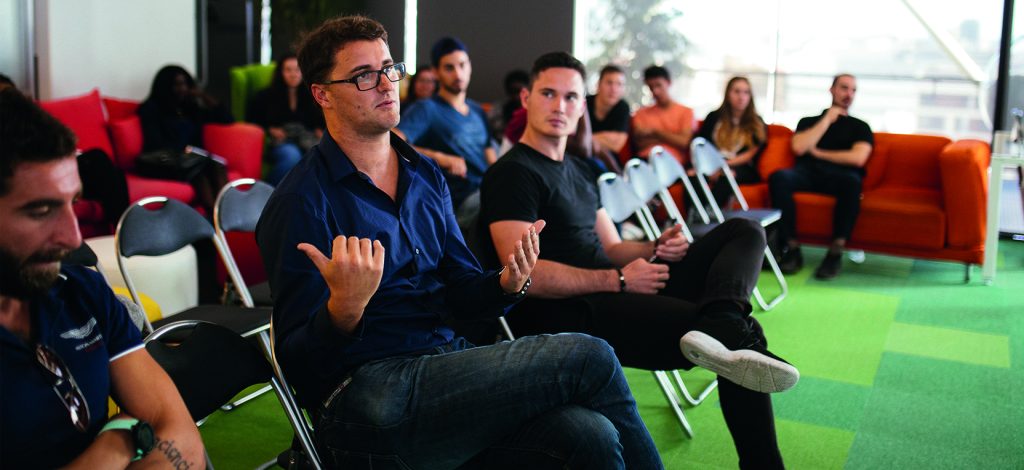Collaborate with us! Emerging ideas on leadership at work, led by BCN faculty member and entrepreneur Dag Flachet. This research project is one we invite you to engage with and contribute to.
Profile:
Professor at Geneva Business School in Leadership and Entrepreneurial related topics.
Dag Flachet is an entrepreneur and investor, he started his first company called Compudoc at the age of 21. Compudoc still exists and has performed more than 50.000 technical support interventions at more than 20.000 homes and businesses throughout the years. Other projects have involved amongst other ideas, crowdsourced fastfood and a marketplace for online community managers. Flachet Holdings is a fund run by Dag which helps entrepreneurs bring their ideas to market, and to scale their business, projects of Flachet Holdings include, Codific: an encryption, server security and GDPR compliance specialist, a coding academy, BeauBol a social for profit project intended to reduce plastic waste and a marketplace for private tutors.
Dag has an executive MBA with focus on entrepreneurship from Flanders Business School and Kellogg School of Management under a joint international program.
Introduction:
The job market is quickly changing, new technologies such as AI are having a disruptive effect. There is a stubborn misconception that technology will decreases the net amount of jobs, nearly a century ago Maynard Keynes coined the term “technological unemployment†[1] yet all evidence throughout the years sends his essay points to the opposite, new technologies add net jobs. But the type of jobs changes. A study by Carl Benedikt Frey and Michael A. Osborne at the University of Oxford points to the following characteristics being important in future jobs: “Social Intelligenceâ€, “Creative Intelligence†and “Cognitive Adaptabilityâ€. A Study [2] from the world economic forum points out that the need for creativity, emotional intelligence and critical thinking are on the rise [3].
We are in the transition from a Knowledge Economy to a Talent Economy. Whilst there is near full employment in many countries there is shortage of talent that is expected to get worse over the coming year. Competition is tough, prices are rising, and companies, especially tech-startups are scrambling to offer all kinds of amenities to employees. Employees in big tech stay on average less than 2 years compared to average of 4.6 for all jobs in the USA[4]. As the talent economy develops and the employee mobility goes through the roof, this challenges the classical strategic notion of competitive advantage. How can we develop or maintain a strategic advantage in the talent economy where people are free and willing to move. Literature on leadership and motivation offers a wide array of possible approaches, but where to start? Which one is your organization’s demon? The wiser companies see clearly that salary is only part of the motivational picture and that bidding wars are to be avoided.
The Hard Soft and Smart framework intends to help organizations map, measure and understand the different motivators. A comprehensive quantifiable system to effectively and efficiently improve motivation, retention and recruitment.
[1] Source: “Economic Possibilities for our Grandchildren†By John Maynard Keynes 1930
[2] “The Future of employment: how susceptible are jobs to computerisation†Carl Benedikt Frey and Michael A. Osborne
[3] “The Future of Jobs Report 2016†World Econoñic Forum
[4] Laurent Huot, Geneva Business School based on data from Bureau of Labor Statistics








